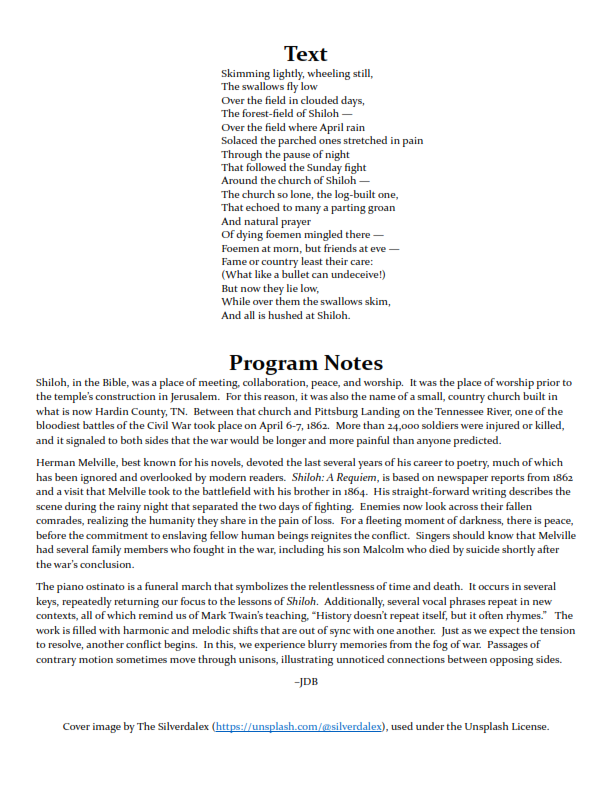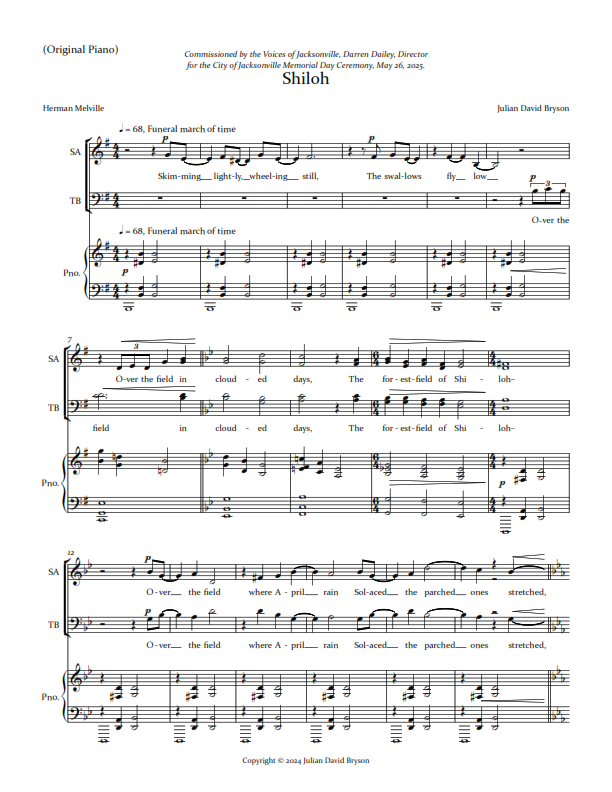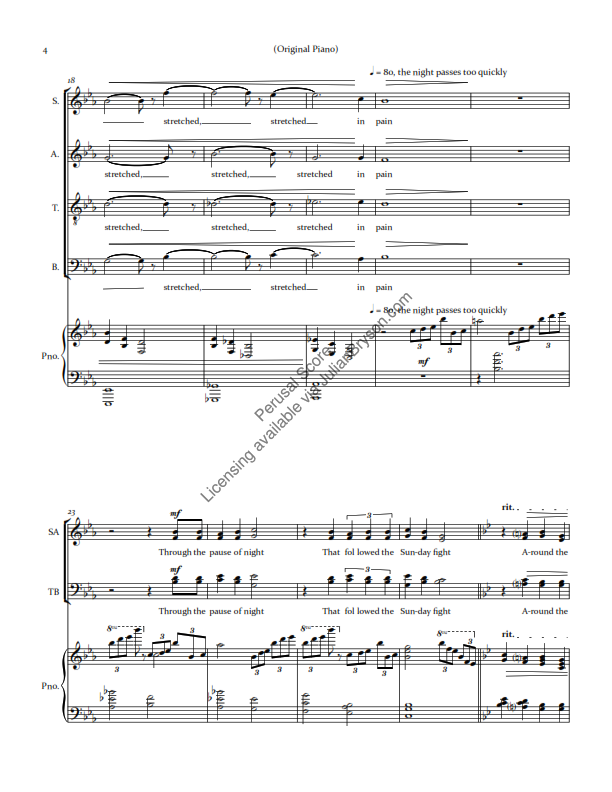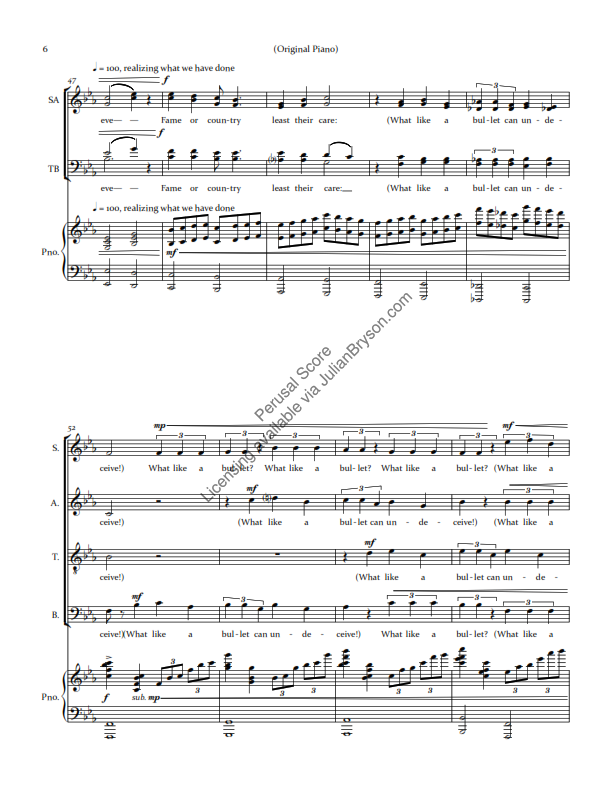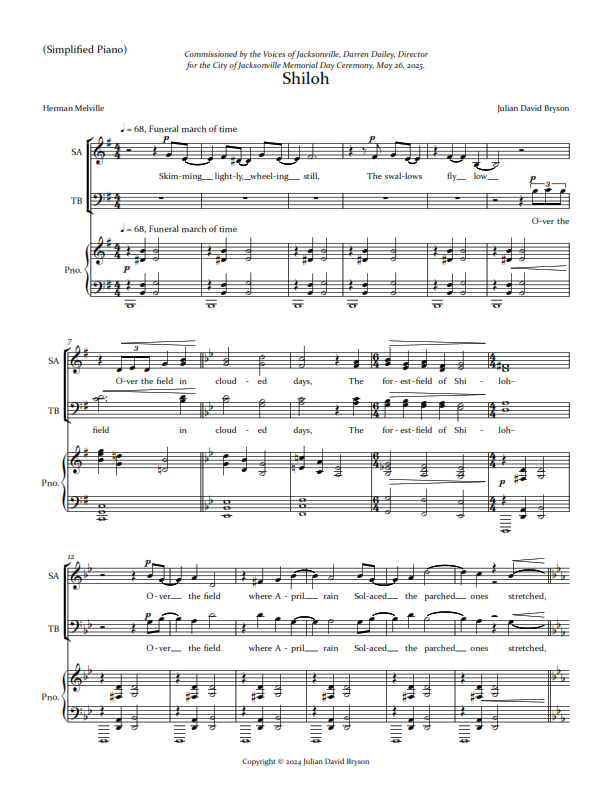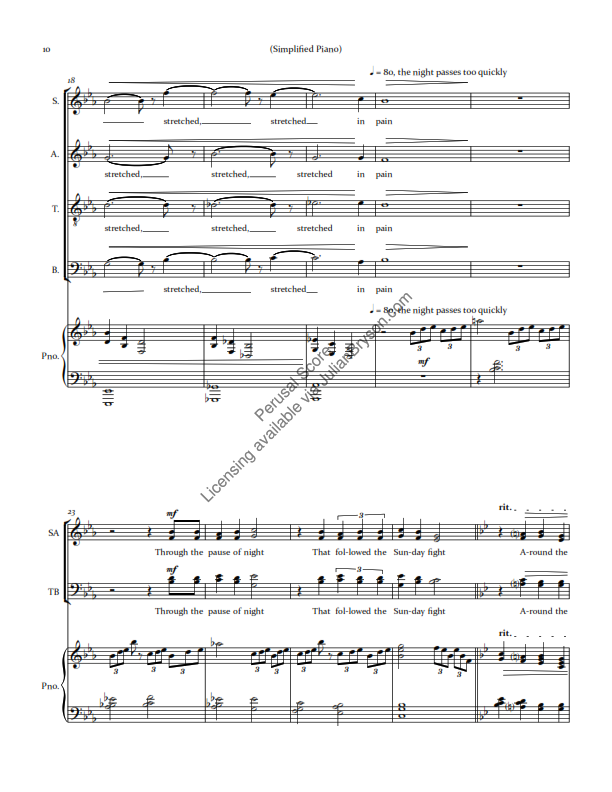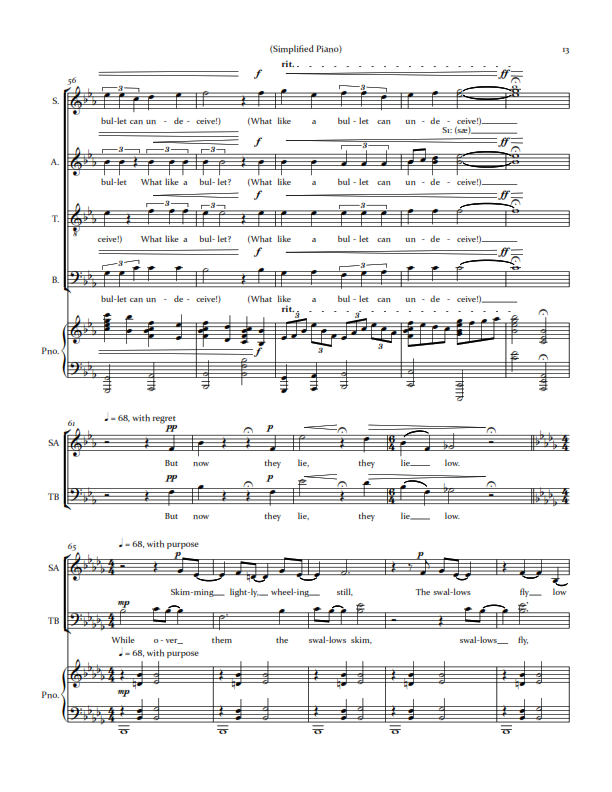Shiloh
Shiloh
Commissioned by The Voices of Jacksonville
Project : Encore Inductee
Now scheduled for publication by Galaxy Music Corp. Please contact Julian for details on licensing this work before it is published.
Shiloh, in the Bible, was a place of meeting, collaboration, peace, and worship. It was the place of worship prior to the temple’s construction in Jerusalem. For this reason, it was also the name of a small, country church built in what is now Hardin County, TN. Between that church and Pittsburg Landing on the Tennessee River, one of the bloodiest battles of the Civil War took place on April 6-7, 1862. More than 24,000 soldiers were injured or killed, and it signaled to both sides that the war would be longer and more painful than anyone predicted.
Herman Melville, best known for his novels, devoted the last several years of his career to poetry, much of which has been ignored and overlooked by modern readers. Shiloh: A Requiem is based on newspaper reports from 1862 and a visit that Melville took to the battlefield with his brother in 1864.
His straight-forward writing describes the scene during the rainy night that separated the two days of fighting. Enemies now look across their fallen comrades, realizing the humanity they share in the pain of loss. For a fleeting moment of darkness, there is peace, before the commitment to enslaving fellow human beings reignites the conflict. Singers should know that Melville had several family members who fought in the war, including his son Malcolm who died by suicide shortly after the war’s conclusion.
The piano ostinato is a funeral march that symbolizes the relentlessness of time and death. It occurs in several keys, repeatedly returning our focus to the lessons of Shiloh. Additionally, several vocal phrases repeat in new contexts, all of which remind us of Mark Twain’s teaching, “History doesn’t repeat itself, but it often rhymes.” The work is filled with harmonic and melodic shifts that are out of sync with one another. Just as we expect the tension to resolve, another conflict begins. In this, we experience blurry memories from the fog of war. Passages of contrary motion sometimes move through unisons, illustrating unnoticed connections between opposing sides.
–JDB
Shiloh: A Requiem
Text by Herman Melville
Skimming lightly, wheeling still,
The swallows fly low
Over the field in clouded days,
The forest-field of Shiloh —
Over the field where April rain
Solaced the parched ones stretched in pain
Through the pause of night
That followed the Sunday fight
Around the church of Shiloh —
The church so lone, the log-built one,
That echoed to many a parting groan
And natural prayer
Of dying foemen mingled there —
Foemen at morn, but friends at eve —
Fame or country least their care:
(What like a bullet can undeceive!)
But now they lie low,
While over them the swallows skim,
And all is hushed at Shiloh.
Commissioned, premiered and recorded by The Voices of Jacksonville, Darren Dailey, Artistic Director
Recorded by Jason Perry at Jacksonville Children's Chorus Headquarters, June 1, 2025
Recording financed by an Individual Artist Grant, funded by the City of Jacksonville and administered by the Cultural Council of Greater Jacksonville.
Cover image by The Silverdalex (https://unsplash.com/@silverdalex), used under the Unsplash License.



